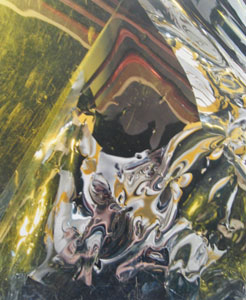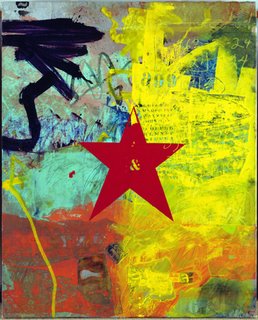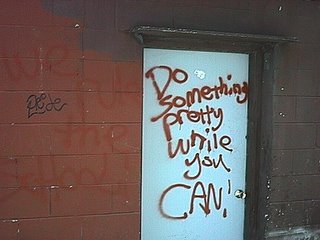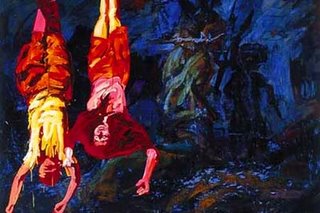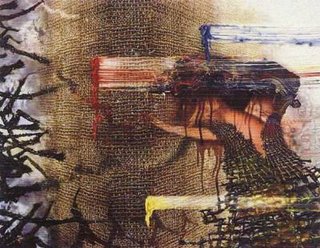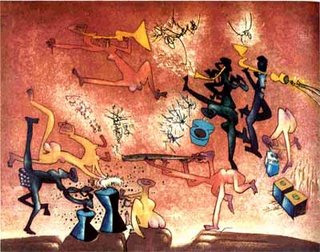throwing nickels at the sunset to buy more time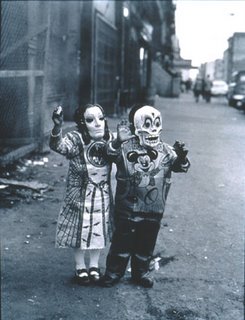
Arthur Trees, Masked Children, 110th Street, New York, 1969
Cosmopolitan Greetings -- by Allen Ginsberg
Stand up against governments, against God.
Stay irresponsible.
Say only what we know & imagine.
Absolutes are Coercion.
Change is absolute.
Ordinary mind includes eternal perceptions.
Observe what’s vivid.
Notice what you notice.
Catch yourself thinking.
Vividness is self-selecting.
If we don’t show anyone, we’re free to write anything.
Remember the future.
Freedom costs little in the U.S.
Asvise only myself.
Don’t drink yourself to death.
Two molecules clanking us against each other require an observer to become
scientific data.
The measuring instrument determines the appearance of the phenomenal
world (after Einstein).
The universe is subjective..
Walt Whitman celebrated Person.
We are observer, measuring instrument, eye, subject, Person.
Universe is Person.
Inside skull is vast as outside skull.
What’s in between thoughts?
Mind is outer space.
What do we say to ourselves in bed at night, making no sound?
“First thought, best thought.”
Mind is shapely, Art is shapely.
Maximum information, minimum number of syllables.
Syntax condensed, sound is solid.
Intense fragments of spoken idiom, best.
Move with rhythm, roll with vowels.
Consonants around vowels make sense.
Savour vowels, appreciate consonants.
Subject is known by what she sees.
Others can measure their vision by what we see.
Candour ends paranoia.
On Going Back To The Street After Viewing An Art Show -- by Charles Bukowski
they talk down through
the centuries to us,
and this we need more and more,
the statues and paintings
in midnight age
as we go along
holding dead hands.
and we would say
rather than delude the knowing:
a damn good show,
but hardly enough for a horse to eat,
and out on the sunshine street where
eyes are dabbled in metazoan faces
i decide again
that in theses centuries
they have done very well
considering the nature of their
brothers:
it's more than good
that some of them,
(closer really to the field-mouse than
falcon)
have been bold enough to try.
Drugs-- by Mary Campbell
Coffee: the tightening at the heart,
The wreath of ice, like thorns
Arranged there to give pleasure,
The interpenetration of the nerves
And mind, until thought
Bites at your breast -- keen lover
Or gourmand to a sentient peach.
A little later in life, not much,
Cold beer ungirdles that tight
Garland, turns the nerves to rivers,
Gives them sense of their own
Latent, riotous joyfulness, as if
They were in bed in fact, always in beds,
And by them willows loosing their long hair.
And oh, the cigarette: beyond
These sexual illusions, the pure bliss
Of smoke loved for its own sake
The moment at which the body of man,
Alone among the animals,
Finds itself satified by nothing,
Or by a desire crafted to fulfill
A source of satisfaction.
